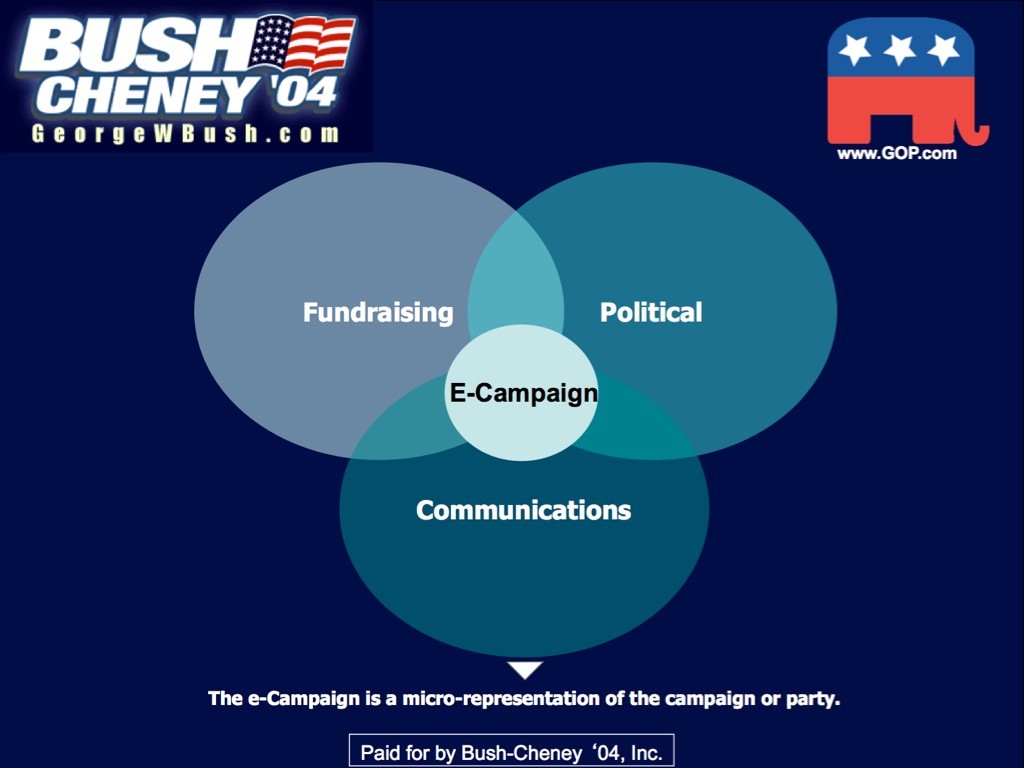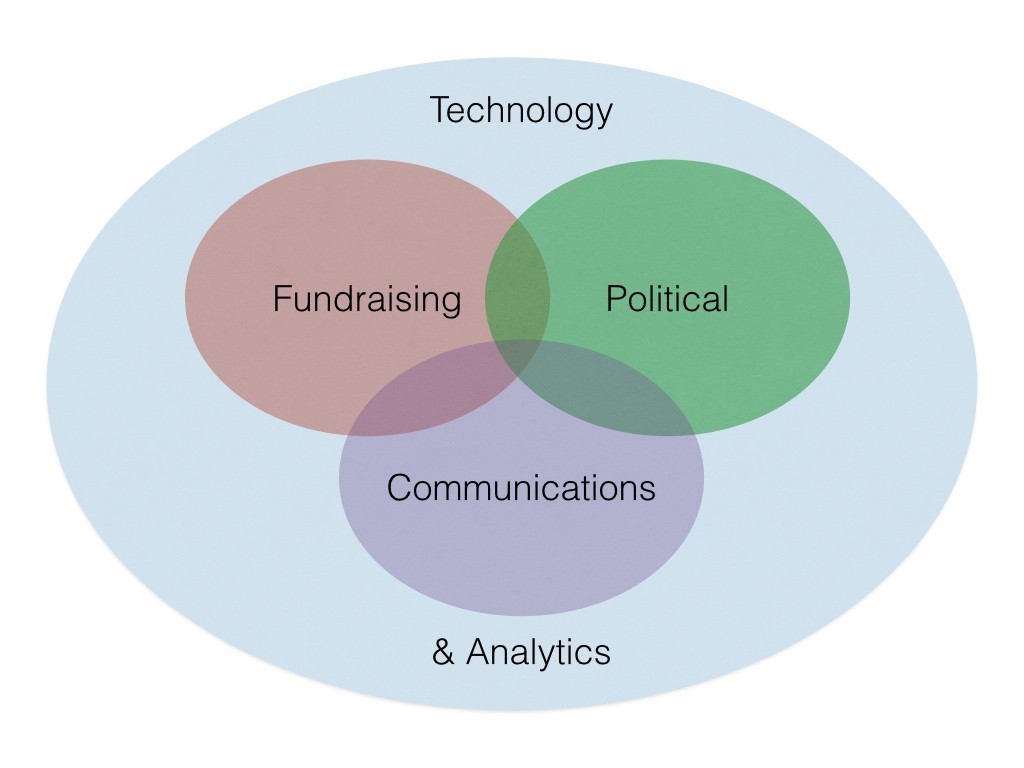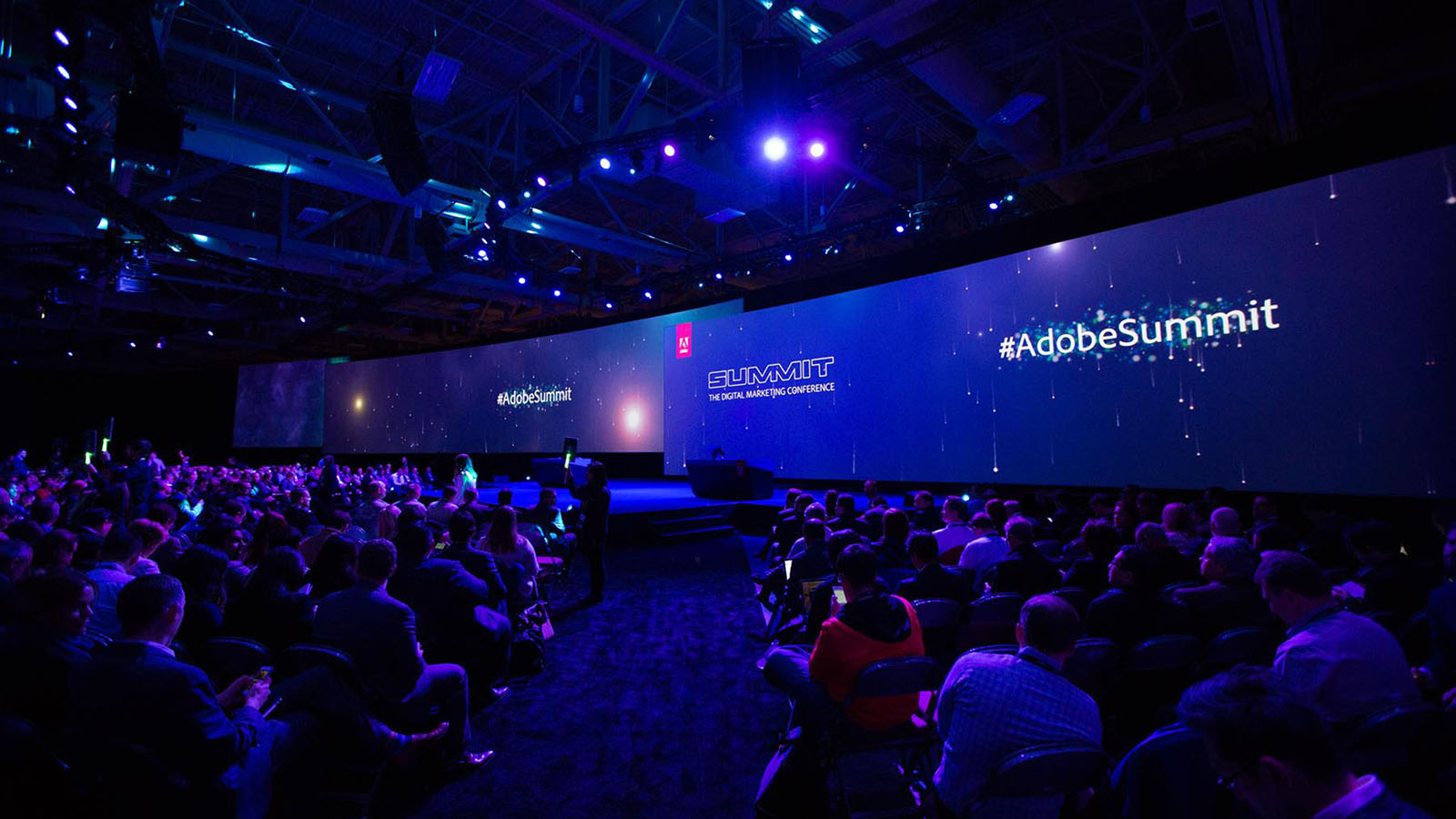My friend Patrick Ruffini published an excellent column recently on the evolution of digital advocacy, specifically the relationship between technology and various campaign departments. He used the following visuals to represent the shift from this:

to this:

It’s definitely a trend we’ve seen over the past couple of cycles. As campaign staffers become more comfortable with technology, and indeed many campaigns are being run by digital natives, technology becomes more central to the day-to-day operations of a campaign.
This presents an interesting challenge for digital agencies: with certain technology functions moving in-house, what is the role of a digital agency for a campaign? Or is there even a role for a digital agency anymore?
I believe that yes, digital agencies are more valuable to campaigns today than they’ve ever been. But that doesn’t mean change isn’t afoot. After all, if we advocate innovation, we should be prepared to take some of our own medicine.
Here’s three essential ways that digital agencies will continue to add value in a post-digital decade:
1. Specialization
As campaigns hire more digital natives, who are naturally good generalists, digital agencies must become more specialized. Even if the campaign is fortunate enough to have a couple of people on board who are comfortable editing HTML or analyzing data, that doesn’t mean they have the wiz-bang talent on board to build and maintain fully responsive web properties and build accurate voter models. That’s where the agency comes in.
While campaign staff are becoming more tech-savvy, agencies need to as well to be able to offer the level of digital, data, design and technology solutions that campaigns demand. Data integrations via API, landing page development, drip campaign creation, graphic design for social media, voter modeling and other specialized tasks are the value provided by an agency going in this direction.
My sense is that this is the route Patrick and his business partner, pollster Kristen Soltis Anderson, are taking with Echelon Insights.
Specialization also means some in digital advocacy will dig into hard-core application development. That’s the route I took in joining Voter Gravity in order to build real web and mobile applications campaigns need to take their data integration to the next level.
2. Advertising
Several agencies have already headed in this direction as online advertising revenue looks like the real potential is for digital agencies. Even here though, self-service ad tools like Facebook and Google AdWords have given the campaign layman the ability to run fairly sophisticated ad campaigns on their own. This is an area that is still ripe for disruption, but digital agencies will likely continue to provide real value to campaigns through strategic buying, cookie-matching, and list development.
There is a risk for the ad-oriented digital agency though. Campaigns demand effective web creative and technology, and it’s easy for an agency to focus too much on chasing dollar signs and not offer the backstop of good technology solutions. Without that capability, campaigns will become frustrated, so it’s essential to cover the basics even while building a core competency around advertising.
CampaignGrid, one of my favorite companies ever, has built a very smart, ad-focused agency that both serves the online advertising needs of campaigns and smartly partners with specialized digital agencies to provide complementary services.
3. Full-service agency
Ironically, most political media shops, traditionally offering TV and radio advertising plans, ignored digital early on due to the lack of revenue at the time. Now, digital shops are stealing significant budget from TV, so of course media shops have started offering digital services.
But to make it really interesting, some digital shops have started offering traditional media services in addition to their core digital services. It’s a natural fit as digital agencies often house the best creative talent available to a campaign. As web video becomes more valuable as a campaign tool, it’s natural that their video production would spill over into broadcast and cable.
CRAFT is probably the first major political agency to build based on this model. They started out as an integrated agency and have grown by providing more and more services to their clients.
To make it really interesting, take a look at the business model of 0ptimus. 0ptimus takes this model up to 11 by coming into a campaign as the general consultant while also offering integrated data and digital services. It’s an ingenious model because not only do they have the capability to produce amazing design across mediums, but as the general consultants they have the leverage to implement innovative solutions that a traditional GC would never go for.
Where are you headed?
What role do you see digital agencies playing in the evolving relationship with campaigns? Here’s to a post-digital decade that is more integrated, innovative, and influential!




